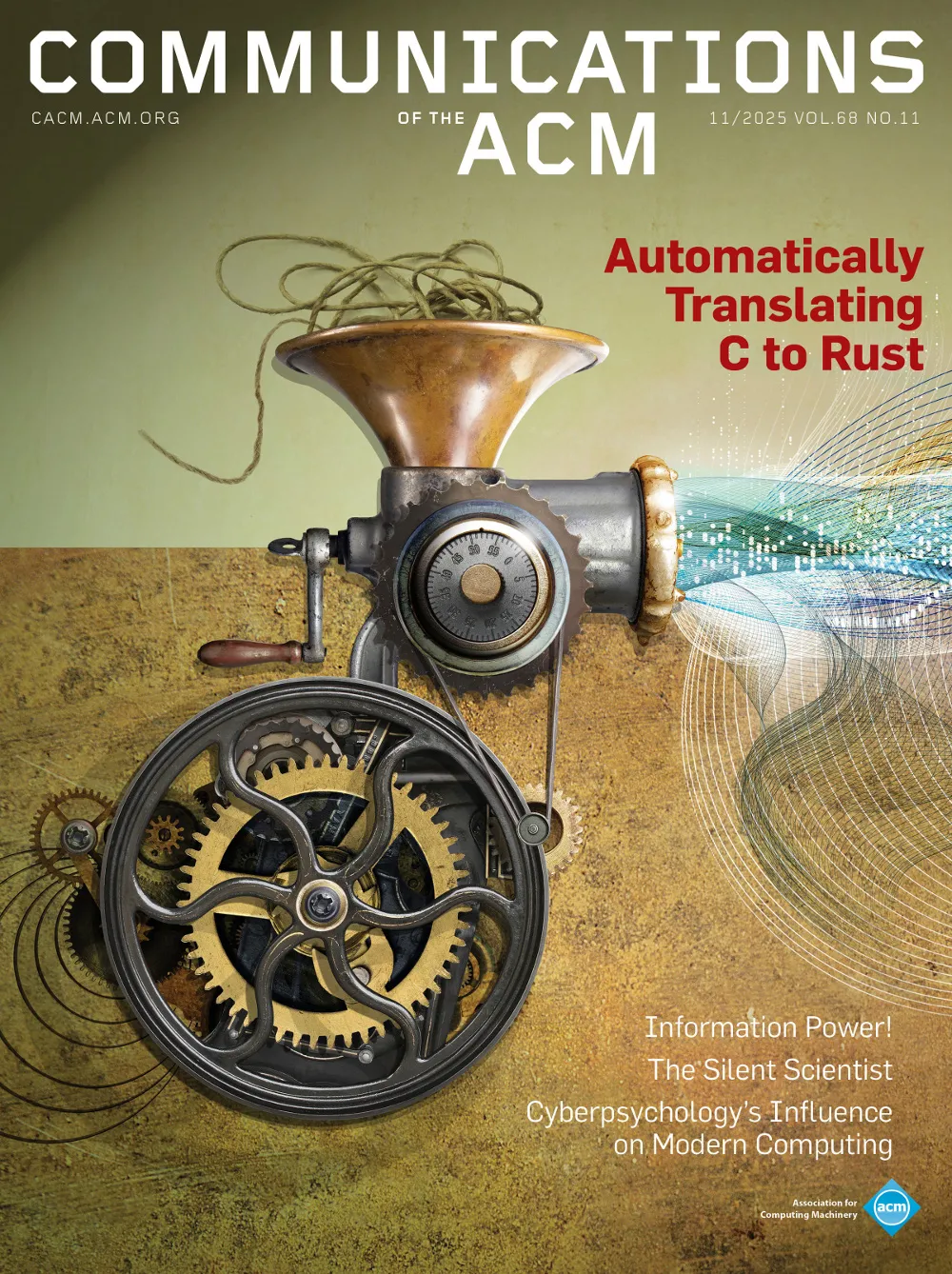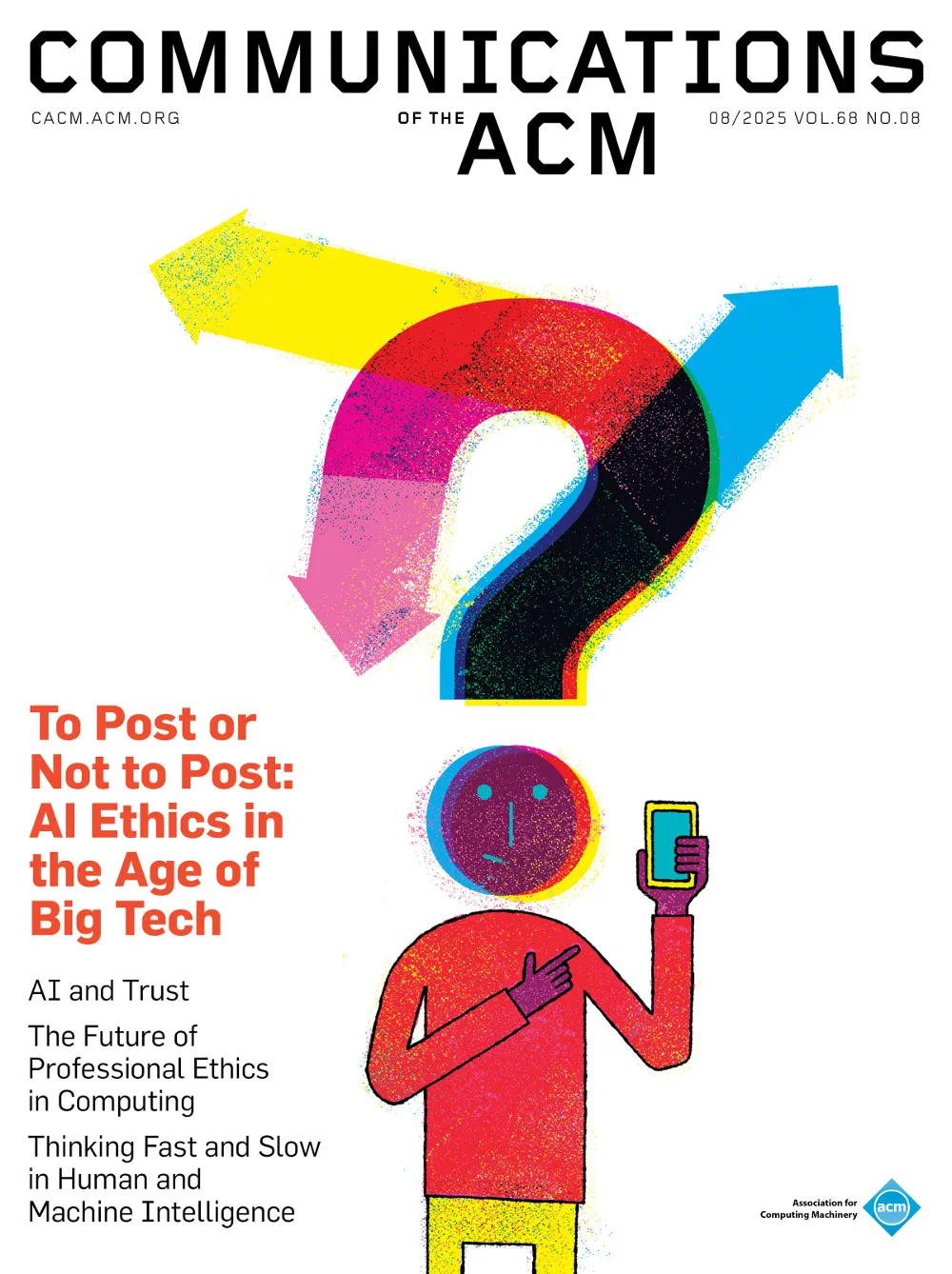March 1999 - Vol. 42 No. 3

Features
Finland: The Unknown Soldier on the IT Front
Good News and Bad News on the Intellectual Property Front
Viewpoint: Focus Groups, Theory or the Kid in the Garage?
Networked Agents For Scientific Computing
Socialware: Multiagent Systems For Supporting Network Communities
Simulations in Economics and Management
Agents For Process Coherence in Virtual Enterprises
Multiagent Data Collection in Lycos
Building Cognitively Rich Agents Using the SIM_AGENT Toolkit
Agents in Tank Battle Simulations
Seven Good Reasons For Mobile Agents
Staffing the Web with Interactive Characters
An XML Framework For Agent-Based E-Commerce
Share the Ontology in XML-Based Trading Architectures
Technical Opinion: Viewpoints on Legacy Systems
Inside Risks: Bit-Rot Roulette











